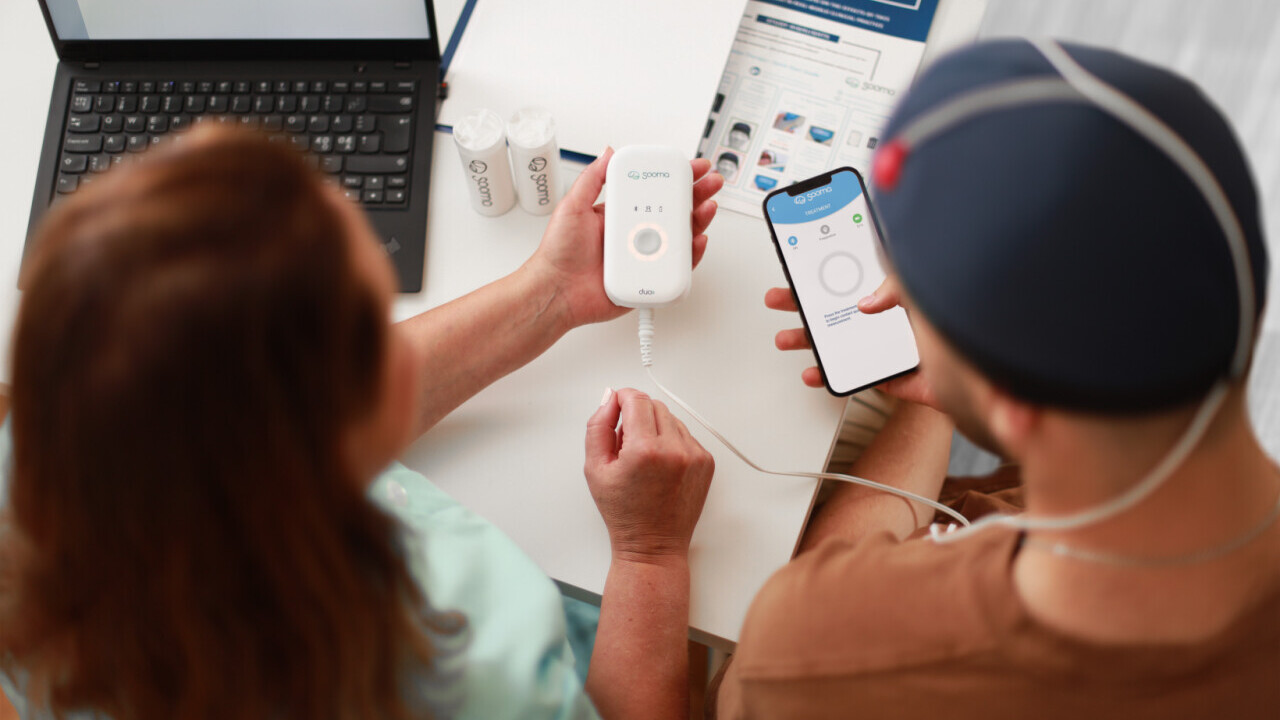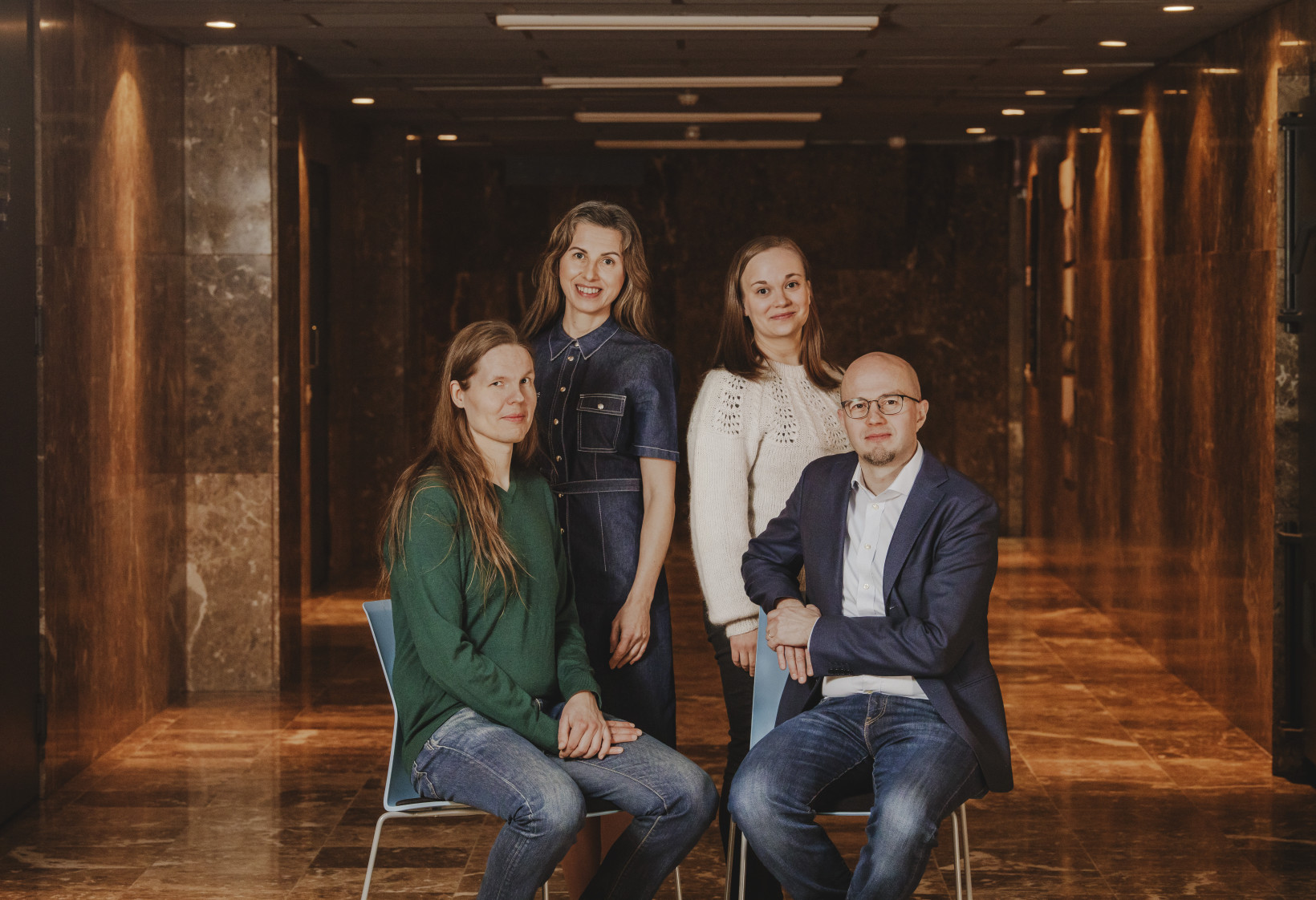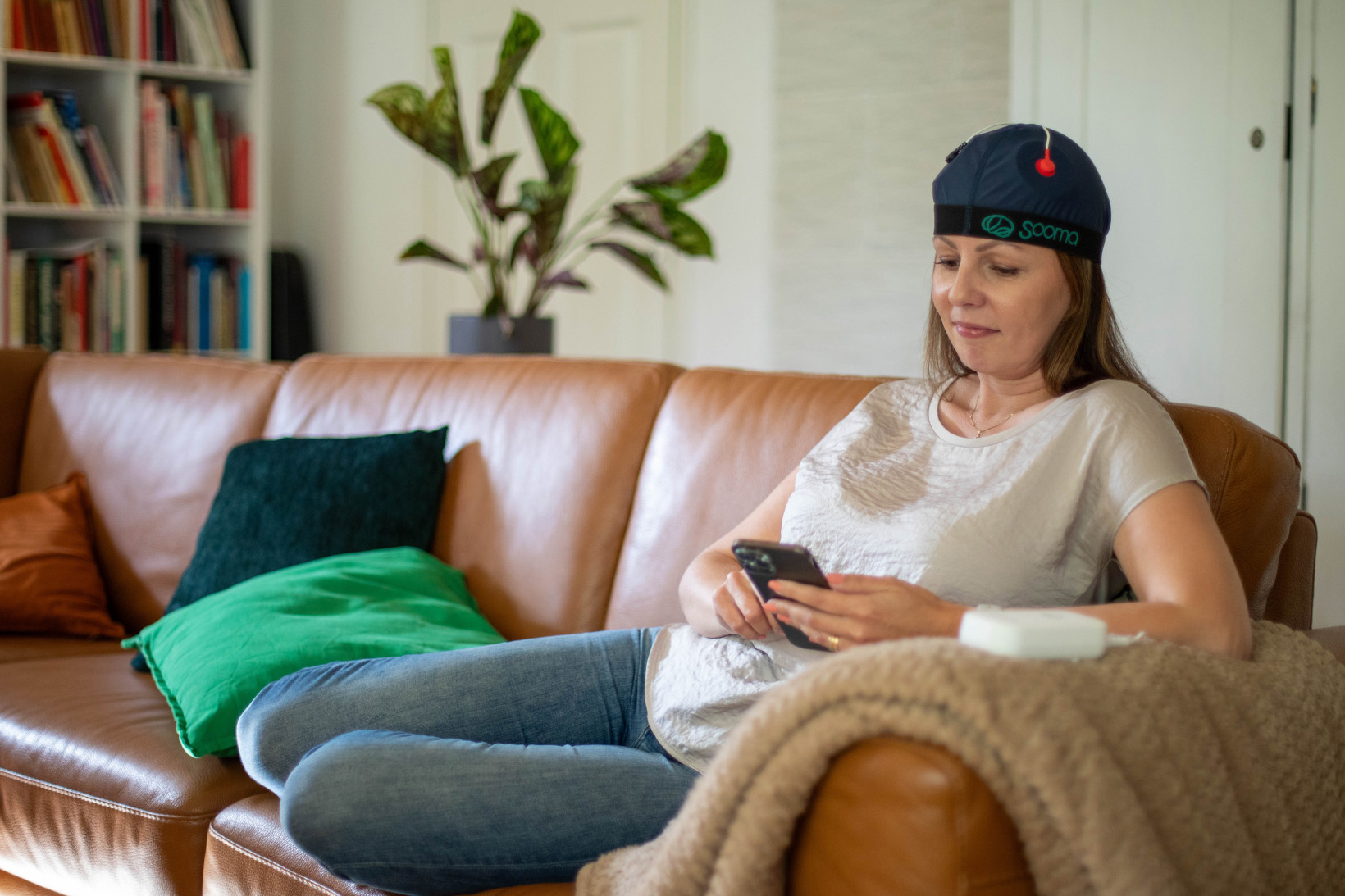
Depression affects approximately 280 million people all over the world, and disproportionately affects the female population — it is 50% more common in women than men. Treatments range from psychotherapy and lifestyle adjustments to antidepressants and more experimental concepts: brain stimulation therapies.
Sooma, a medtech startup based in Helsinki, Finland, is focused on the latter. The company has developed a portable brain stimulation device for Transcranial Direct Current Stimulation (tDCS).
Its neuromodulation device is already the most prescribed tDCS therapy worldwide, with over 20,000 people having received treatment. Sooma announced today it has secured additional growth funding of €5mn to further develop the product and expand in new and existing markets.
What is tDCS for depression?
tDCS is a form of neuromodulation (the process of regulating nervous system activity by controlling the physiological levels of neurons) that uses a low electrical current to stimulate specific parts of the brain.
So how exactly does wearing a swimming cap with electrodes alleviate depression symptoms? The mild electrical currents administered through the cap can influence the activity of specific brain cells, responsible for releasing neurotransmitters related to mood. In addition, a 2023 study published in Nature found that specific set-ups of tDCS generated more grey matter, key component of the brain’s neural tissue, in areas of the brain associated with loss of grey matter from depression.

“Everyone battling depression deserves a chance at a brighter tomorrow,” said Tuomas Neuvonen, co-founder and CEO of Sooma. “We are dedicated to reaching especially those underserved by medication, or those with limited access to psychotherapy, ensuring everyone suffering from depression has access to the best possible care.”
While Sooma’s device may be used in the home, the treatment is prescription-only. Patients can use it as a stand-alone intervention, or in combination with other therapies. The system pairs with a digital platform that allows doctors to monitor how well patients follow the prescribed therapy, and adapt it to individual needs.
Fast-tracking FDA certification
The startup also wants to help bridge the mental health care gap in the US, following an FDA Breakthrough Device Designation. This is an identification that states that a device should receive expedited certification for patient access because of its potential to provide more effective treatment than the standard means of care.

“Gaining FDA approval would not just open up the therapy for patients throughout the US but also serve as a stamp of approval for regulators around the globe,” Neuvonen said. In September last year, Sooma also became the first tDCS device manufacturer to receive European Medical Device Regulation certification.
The €5mn funding round was led by renowned Nordic early-stage investor Voima Ventures, who were joined by Singapore-based Verge HealthTech Fund, and existing investor Stephen Industries, a Helsinki-based family office investing in health tech and other impactful technology solutions.
Get the TNW newsletter
Get the most important tech news in your inbox each week.





